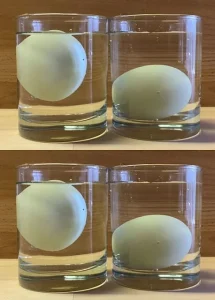
How to Tell If an Egg Has Gone Bad
Eggs are a beloved ingredient found in kitchens around the world, celebrated for their versatility and nutritional benefits. Whether scrambled for breakfast, whisked into a cake batter, or poached for a fancy brunch, eggs play a crucial role in countless recipes. However, like many perishable items, eggs have a limited shelf life, and knowing how to determine their freshness is essential for both food safety and culinary success.
Using spoiled eggs can lead to unpleasant flavors and even foodborne illnesses, making it vital to check their quality before use. Fortunately, assessing whether an egg is fresh or has gone bad doesn’t require a degree in food science. With a few simple tests, you can easily determine the freshness of your eggs right at home.
In this guide, we’ll explore various methods, from the classic float test to sensory evaluations like smell and sound, to help you confidently assess your eggs. We’ll also cover the importance of understanding expiration dates and checking the condition of the eggshell. With this knowledge, you can ensure that every dish you create is delicious and safe, making the most of one of nature’s simplest and most nutritious ingredients.
1. Float Test
To check the freshness of your eggs, try the float test:
- Fill a bowl with water.
- Gently place the eggs in the water.
- Fresh eggs will sink and lie flat on the bottom.
- Slightly older eggs will stand upright on the bottom but are still safe to eat.
- Bad eggs will float to the top and should be discarded.
2. Smell Test
Your nose can help you identify spoiled eggs:
- Crack an egg into a bowl or plate.
- Take a sniff.
- Fresh eggs should have a light, grassy smell.
- If the egg emits a strong, unpleasant odor (like sulfur), it has gone bad.
3. Shake Test
The shake test can also indicate freshness:
- Hold the egg close to your ear and gently shake it.
- Fresh eggs should make little to no noise.
- If you hear a sloshing sound, the egg is likely spoiled.
4. Check the Expiration Date
Egg cartons often display a “sell-by” or “use-by” date. While this is a helpful guideline, eggs can still be safe to eat for some time past this date if stored properly.
Please Head On keep on Reading (>)
